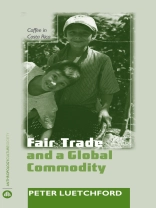Fair trade is widely regarded as a universal good. This fascinating anthropological study takes a closer look at a coffee-growing community and cooperatives in Costa Rica – and subjects the fair trade movement to critical scrutiny.
As with conventional coffee, Western demand for organic fair trade produce is largely met by more affluent individuals with larger landholdings. As a result, it is caught up in the conflicts of interest and resentments that are part of the coffee industry as a whole. Ultimately fair trade fails to escape divisions that characterise other forms of production and consumption.
All growers are united in their criticism of the high margins accumulated by regional and transnational processors and exporters. Sustainability, just rewards and social cohesion have formed part of the world view of these agricultural communities for decades. This book shows how there is much common ground between the worlds of the commodity grower and the priorities of the fair trade movement – if not necessarily always in the ways we might suppose.
Mục lục
Acknowledgements
Acronyms And Proper Names
Glossary Of Spanish Terms
Introduction; Approaching Fair Trade: Coffee In Costa Rica
1. Creating Cooperatives: The Welfare State, Coffee, And Fair Trade In Costa Rica
2. Sowing Progress And Contesting Development In The Tilaran Highlands
3. Farming For The Global Economy: ‘Playing’ And ‘Juggling’ In The Market
4. Landowners And Labourers: Uncertainties, Strategies And Tensions In The Labour Process
5. Working Nature, Working The Market: Sustainability And Organic Agriculture
6. Envisioning Autarky: The Family And The Farm
7. Civil Society: Local Development And The Limits Of Government
8. Creating And Contesting Value: The Earth, Labour, And Exchange
Conclusion: Fair Trade And Moral Economies
Notes
Index
Giới thiệu về tác giả
Pete Luetchford is Lecturer in Anthropology at the University of Sussex. He is the author of Fair Trade and a Global Commodity (Pluto, 2007) and Food for Change (Pluto, 2013).












